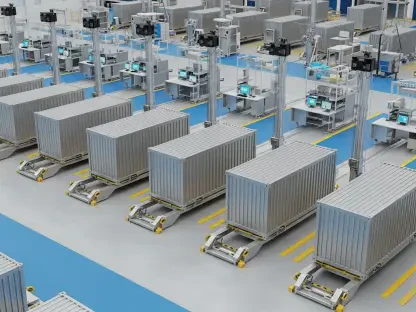In the current fast-paced business environment, organizations face the constant challenge of remaining competitive while transforming according to market demands. A compelling shift in organizational strategy has emerged, focusing on process-led transformation as a crucial approach toward achieving sustainable change. This trend emphasizes aligning organizations’ processes before considering technological solutions, ensuring that all business functions are well-coordinated and efficient, thereby laying the groundwork for long-lasting transformation. Process-led transformation is steadily gaining traction as businesses recognize its potential to drive meaningful and lasting change, setting the stage for further exploration into its implications and impact.
Understanding the Growth of Process-Led Transformation
Data and Trends in Process-Led Transformation
Numerous data points and research findings highlight the adoption rates and effectiveness of process-led transformation approaches. Research suggests that organizations prioritizing process understanding and alignment see higher success rates in their transformation efforts. Various industry reports validate this trend by demonstrating a significant shift toward prioritizing well-defined processes over technology-centric strategies. Over time, the emphasis on streamlined processes has yielded not only improved efficiency but also a notable reduction in implementation failures.
Real-World Applications and Case Studies
Successful implementation of process-led transformation is evident in several organizations across industries. One notable example involves a renowned retail company that focused on streamlining its supply chain processes before investing in advanced inventory management technology. As a result, the company experienced significant cost reductions and improved turnaround times. Another case study involves a financial institution that analyzed its customer service processes before integrating AI-driven customer interaction platforms, leading to enhanced customer satisfaction and retention rates. However, these transformations also encountered challenges, particularly in maintaining momentum and securing buy-in from all stakeholders.
Insights from Industry Leaders and Experts
Insights from industry leaders and experts reveal why process-first approaches are more advantageous than technology-first strategies. Many thought leaders argue that an overreliance on technology acquisitions overlooks the foundational need for coherent processes. Expert analyses shed light on prevalent challenges faced by organizations during process-led transformations. A common obstacle is overcoming resistance to change, which can impede the adoption of new strategies. Experts suggest robust change management practices and fostering a culture of continuous improvement to mitigate such challenges.
The Future Landscape of Process-Led Transformation
As organizations navigate future landscapes, emerging trends in process-led strategies demonstrate promising prospects across various sectors. With technological advances in automation and AI, organizations can empower their process-led transformations to reach new heights. However, the importance of maintaining a process-driven mindset cannot be overstated. While there are potential challenges, such as change fatigue and adapting to evolving market conditions, the long-term benefits of a robust process-led approach are considerable. These include agility, resilience, and the ability to capitalize on technological advancements more effectively.
Conclusion and Forward-Looking Perspective
In conclusion, the critical role of process-led transformation in achieving lasting organizational change has become increasingly evident. By focusing on refining processes before investing in technology, organizations lay a solid foundation for meaningful transformation. As businesses continue to pursue innovative ways to remain competitive, the integration of process-led strategies will serve as a cornerstone for success. It is imperative for organizations to embrace process improvement as an ongoing journey, ensuring that their operations remain adaptable and capable of leveraging future technological advancements. This transformative shift, driven by coherent processes and empowering technologies, promises to lead companies toward a sustainable and prosperous future.









